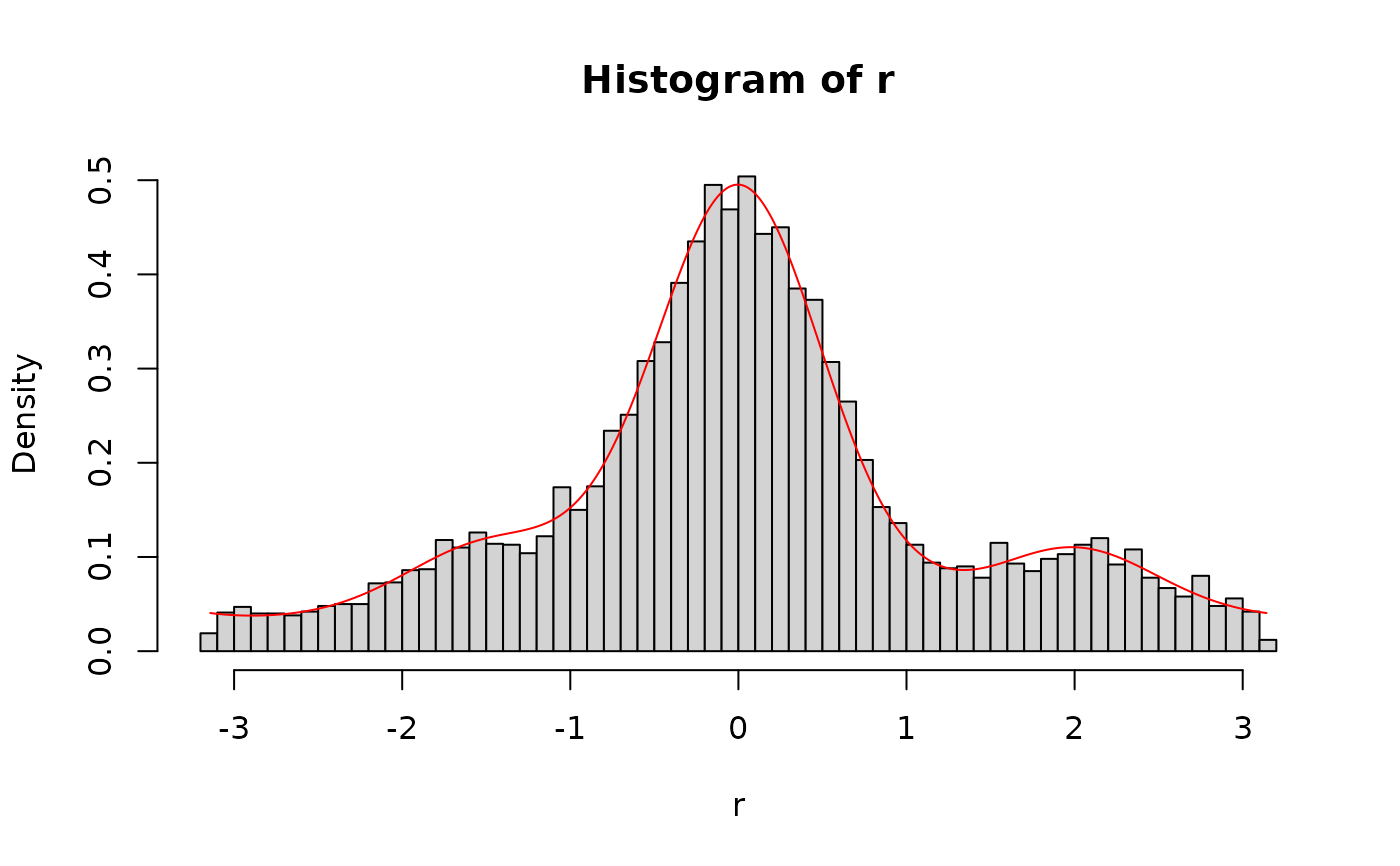Distribution functions for the three-parameter mixture model (mixture3p)
Source:R/distributions.R
mixture3p_dist.RdDensity, distribution, and random generation functions for the
three-parameter mixture model with the location of mu, precision of
memory representations kappa, probability of recalling items from memory
p_mem, and probability of recalling non-targets p_nt.
Arguments
- x
Vector of observed responses
- mu
Vector of locations. First value represents the location of the target item and any additional values indicate the location of non-target items.
- kappa
Vector of precision values
- p_mem
Vector of probabilities for memory recall
- p_nt
Vector of probabilities for swap errors
- log
Logical; if
TRUE, values are returned on the log scale.- q
Vector of quantiles
- p
Vector of probability
- n
Number of observations to generate data for
Value
dmixture3p gives the density of the three-parameter mixture model,
pmixture3p gives the cumulative distribution function of the
two-parameter mixture model, qmixture3p gives the quantile function of
the two-parameter mixture model, and rmixture3p gives the random
generation function for the two-parameter mixture model.
References
Bays, P. M., Catalao, R. F. G., & Husain, M. (2009). The precision of visual working memory is set by allocation of a shared resource. Journal of Vision, 9(10), 7.
Examples
# generate random samples from the mixture3p model and overlay the density
r <- rmixture3p(10000, mu = c(0, 2, -1.5), kappa = 4, p_mem = 0.6, p_nt = 0.2)
x <- seq(-pi, pi, length.out = 10000)
d <- dmixture3p(x, mu = c(0, 2, -1.5), kappa = 4, p_mem = 0.6, p_nt = 0.2)
hist(r, breaks = 60, freq = FALSE)
lines(x, d, type = "l", col = "red")
